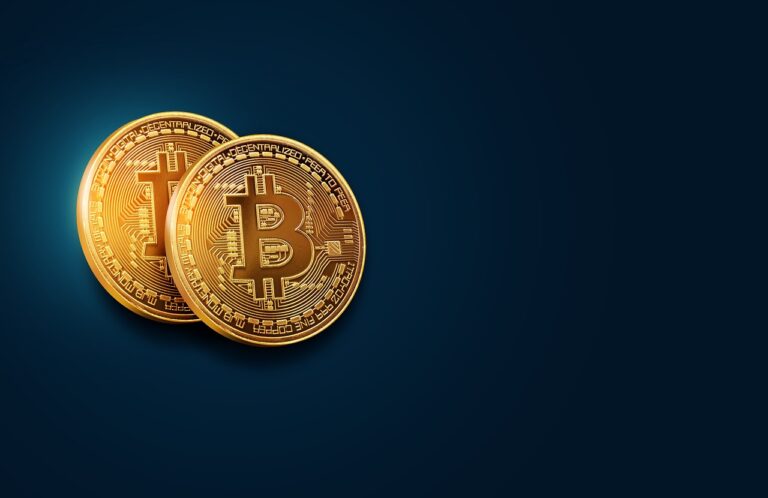The world of finance has seen rapid and unprecedented changes due to the development of decentralized finance (DeFi). Decentralized financial services (DeFi) are open-source, decentralized financial services built on top of blockchain technology.
It has brought a new wave of openness, accessibility, and transparency to the traditional financial system. This article will discuss what DeFi is, its potential for transforming finance, its current challenges, and possible future direction.
Table of Contents
An overview of DeFi
DeFi is a rapidly growing sector of the blockchain ecosystem that uses smart contracts to enable financial services.
It has created an open, accessible, and transparent system for users to access financial services such as lending, borrowing, trading, investing, and insurance without any third-party involvement.
These services are built on top of public blockchains such as Ethereum, which allows users to interact directly with the blockchain and provides a level of trust between the users.
The benefits of using DeFi
The fundamental advantage of adopting DeFi is that anyone with an internet connection may use it and make use of these services, regardless of where they reside or their financial situation. It also allows for much lower fees compared to traditional financial services.
This is because no intermediaries or third-party organizations charge additional fees, and transactions are settled almost instantly on the blockchain. Additionally, DeFi projects often use automation, which can reduce costs and increase efficiency.
The potential of DeFi to transform finance
DeFi has the potential to revolutionize the way finance works. It could bring a new level of accessibility and transparency that could open up financial services to people who previously did not have access. Additionally, it would reduce costs for those already accessing financial services and increase efficiency due to automation.
1. Accessibility to financial services
The capacity of DeFi to offer financial services to individuals who are underserved by conventional financial institutions is one of the platform’s greatest potentials.
This could include people in developing countries and those with limited access to banking or credit services due to their location or financial standing. Providing these individuals with access to the same financial tools available in developed nations could help create equality in the global financial system.
2. Lower costs and increased efficiency
Transaction fees are much lower with DeFi than with traditional financial services. This is because no intermediaries are taking a cut of the transaction, and the transactions themselves are settled almost instantly on the blockchain, reducing wait times for customers to access their funds.
Additionally, these projects often use smart contracts and automation, which can reduce costs and increase efficiency.
3. Unlocking new capital sources
DeFi has the potential to unlock new sources of capital by creating a more efficient system of capital allocation.
This could enable individuals to access financing options that were previously unavailable, such as peer-to-peer (P2P) loans, tokenized debt instruments, and decentralized insurance.
The challenges of DeFi
DeFi (decentralized finance), also known as open finance, is a rapidly growing financial technology sector that enables peer-to-peer transactions on the blockchain.
Despite its potential to revolutionize traditional financial services, DeFi still has significant challenges to overcome before realizing this potential. These challenges include scalability issues, limited liquidity, lack of regulation and compliance, security concerns, and user experience issues.
Scalability is a key issue for DeFi platforms, as current blockchain technologies need to support the large number of transactions required for DeFi to succeed. This limits the amount of data that can be stored on-chain and slows down transaction times.
Lack of liquidity is a major challenge for DeFi projects. This is because it can be difficult to find the right buyers and sellers at the right price. This creates an inefficient market in which prices are determined by limited information.
The lack of regulation and compliance around DeFi also presents a significant challenge. Most of these projects operate outside of traditional financial institutions, so they are not subject to the same regulations and compliance standards as traditional services.
Security is another major challenge for DeFi projects. The lack of clear legal frameworks can lead to various security issues, including hacking and malicious actors. Additionally, since most these platforms are built on smart contracts, there is a risk of code bugs which can cause a loss of funds.
Finally, DeFi projects often need a better user experience. Complex blockchain technology and technical infrastructure can be intimidating for non-technical users and lead to confusion and frustration. Additionally, the decentralized nature of these platforms can make it difficult to access customer support or dispute resolution services if needed.
The future of DeFi
The future of decentralized finance (DeFi) looks incredibly promising. As blockchain technology continues to improve, this projects have the potential to revolutionize traditional financial services. It will remove intermediaries, reducing costs, and provide more access to services. We already see signs of success with projects such as MakerDAO and Compound Finance, offering new ways to access capital and earn yield.
As the DeFi ecosystem matures, we will likely see an increase in the development of decentralized applications (dApps) that facilitate lending, borrowing, trading, and other financial services. DeFi has the potential to disrupt the financial sector significantly. It can be done by offering services that are more efficient, safe, and transparent than those provided by traditional finance and giving consumers greater control over their money and data.
The growth of DeFi is also likely to lead to new opportunities for developers. This includes opportunities to create more interoperable blockchain protocols, expand existing networks with scalability solutions, and develop improved user experiences. With its vast potential and wide-reaching implications, it is sure to become a major player in the financial industry over the next few years.
With its potential to revolutionize traditional finance, DeFi is here to stay. The future of decentralized finance is bright—so be ready for an exciting ride!
Read more: Web3, what is it and what can you do with it












